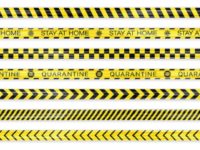The Federal government has come up with a stimulus package for SMEs that have been affected by the coronavirus outbreak.
The stimulus package is also designed to protect the economy as the coronavirus crisis has adversely affected businesses across the globe, especially in terms of tourism and logistics.
Despite this development, the Federal government has ruled out a “cash splash” especially for affected SMEs.
This was counter to the action taken by the government during the 2008-2009 global financial crisis, during which then-Treasury chief Ken Henry advised the government then to “go early, go hard, go households”. This resulted in $900 cheques being sent to Australians across the nation.
“What happened in the GFC with the virtual closing of financial markets… aggregate demand stopped almost on a dime,” the present Treasury secretary Steven Kennedy told the Senate economics committee.
The policy resulted in a dramatic decline in demand for retail goods and the retail sector were lacking a boost from consumption which would have driven the industry and the economy forward.
With the current coronavirus crisis taking place, the emphasis is now less on handing cashouts but on helping businesses to ensure the people remain employed.
“Certainly there are small- and medium-sized businesses that have been affected, a number of them have the double-up effect… of the bushfires and now the coronavirus,” Kennedy told the committee in Canberra.
So far the tourism and education sectors are the most affected by the current crisis, especially in light of Australia’s initial response to ban Chinese visitors and students from entering the country.
The stimulus package is tipped to include tax incentives to help businesses with cashflow, alongside tax deductions for new investments.
Funding will also be allotted to infrastructure spending, which normally translates to major road and rail projects.
The multi-billion-dollar stimulus package is expected to be released within the week.














